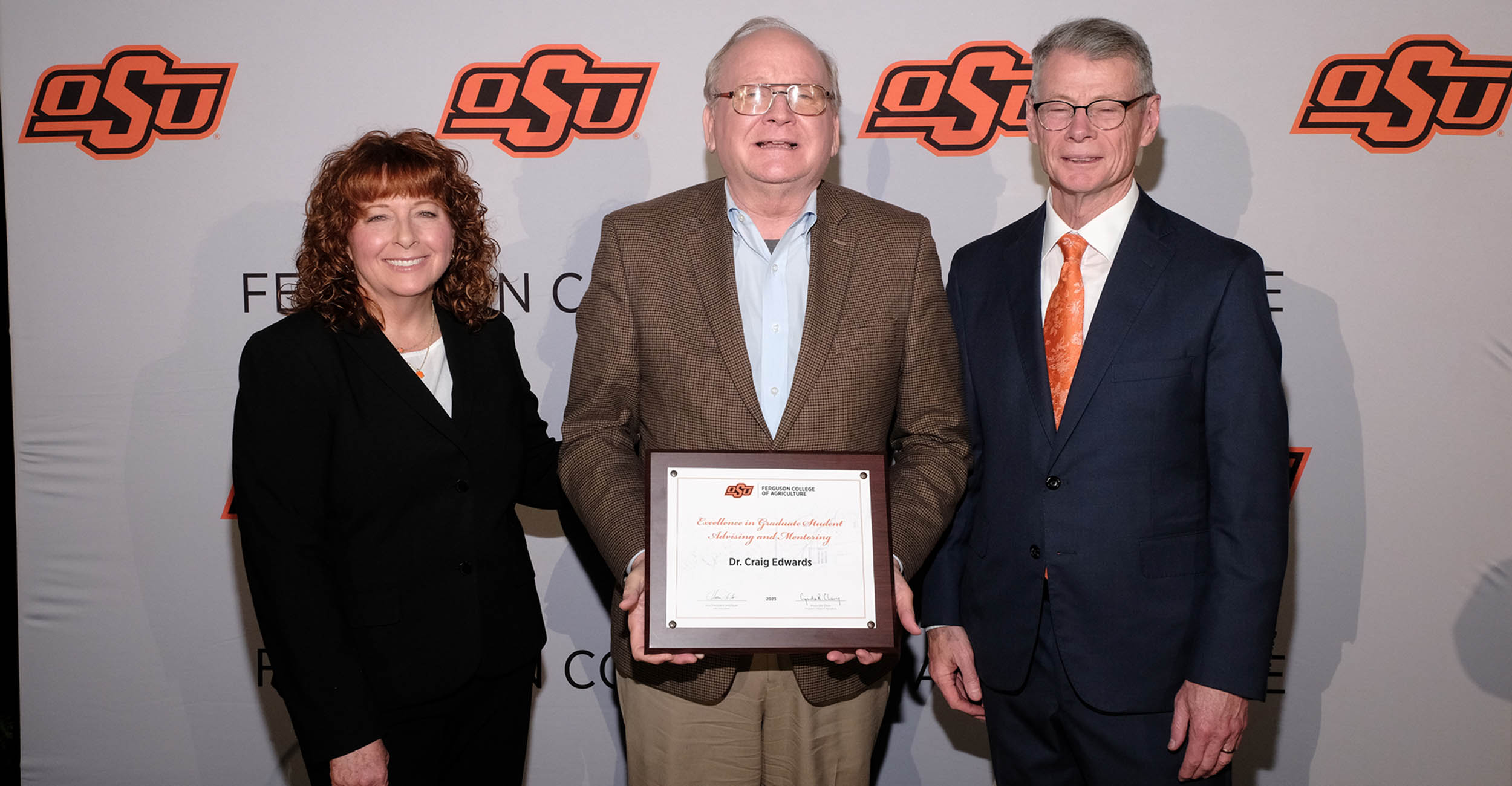
Edwards honored with award for Excellence in Graduate Student Advising and Mentoring
Tuesday, April 18, 2023
Media Contact: Jami Mattox | Digital Manager | 405-744-1884 | jami.mattox@okstate.edu
Craig Edwards, professor in the OSU Department of Agricultural Education, Communications and Leadership, was recognized with the award for Excellence in Graduate Student Advising and Mentoring at the Ferguson College of Agriculture Scholarship and Awards Banquet.
Department head Rob Terry described Edwards as a faculty member focused on student goals, diverse perspectives and motivating and supporting students.
“Throughout his career, Dr. Edwards has distinguished himself as an outstanding teacher, advisor and mentor,” Terry said. “He is highly respected as a mentor to graduate students in our department and across our discipline.”
Growing up, Edwards was active in 4-H, FFA and vocational agriculture. He said he was fortunate to have excellent ag teachers who inspired him to join the profession. He taught high school agriculture for 15 years. After coming to OSU in 2002, he served as director of student teaching in agricultural education for 10 years and graduate coordinator for 10 years.
Edwards said the Ferguson College honor reflects his work with high-level students and colleagues over an extended period.
“It’s always gratifying for your work to be recognized, but it’s really a proxy for the achievements of students that I’ve had the opportunity to work with. And hopefully, it reflects attempting to collaborate with others and of having high standards,” he said.
Edwards has advised 15 doctoral students and dozens of master’s students. He has served on 23 doctoral committees, chairing 16, and has been on 85 master’s committees, chairing 18. To date, he has co-authored a book chapter, 95 journal articles, 172 refereed conference papers and 104 refereed conference posters with his colleagues and proteges.
“Dr. Edwards’ mentorship of graduate students extends far beyond committee work. Students seek his guidance because his knowledge spans a wide breadth of subjects associated with agricultural education, ranging from teacher preparation to international entrepreneurship,” said Cynda Clary, associate dean of the Ferguson College of Agriculture.
Edwards has earned awards from the Association for International Agricultural and Extension Education, the American Association for Agricultural Education, the North American Colleges & Teachers of Agriculture and the Association for Career and Technical Education Research.
“Be a good listener and listen to your students closely and deeply and try to understand the essence of them in terms of their interests,” Edwards said of being an advisor. “Students need to have some curiosity, but they also need to have persistence and resilience because like anything in life, there are going to be ups and downs in graduate school.”
Edwards said one way he improves himself as a graduate student advisor is staying up to date on literature.
“You often do that through your students,” he said. “Frequently, students widen and deepen your understanding of literature. “They will bring literature to me, and they may educate me on something I didn’t know about, or they may open up a whole new line of study.”
He said he works to encourage students to focus on what they want for their future and how what they are currently doing will benefit that future.
“Seeing your students succeed is what it boils down to. Seeing them fulfill their goals and destinies, whatever small role I may have played in that regard, is very gratifying,” Edwards said. “When I have a student apply and interview for a job at a peer institution and be hired, that’s gratifying because essentially, you have played a role in continuing the discipline.”
By: Alisa Boswell-Gore
